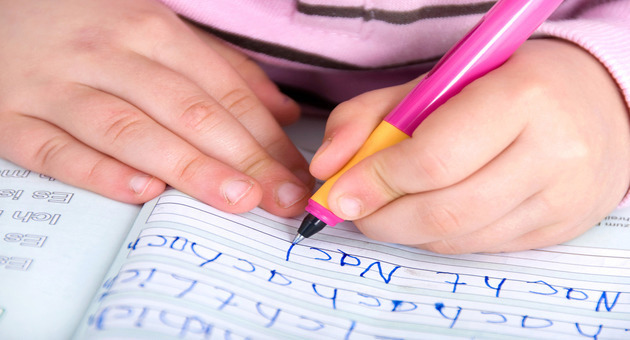What Is Dyslexia?
Dyslexia is a neurobiological condition in which the child faces difficulty in reading accurately and fluently. It is a learning disability in which the child may not be able to learn spellings, write properly, understand mathematics and read comprehensions.
What Causes Dyslexia?
The exact cause of dyslexia is not yet known. Experts also believe that there is no single cause for the condition and in a few cases it may run in the families and pass on through generations (genetic disorder). It is also believed that problems in the brain could also be a reason. However, it has been confirmed that dyslexia is not caused by poor vision.
How Would You Know If Your Child Has Dyslexia?
Dyslexia may impact people of different age groups and the corresponding symptoms shall also vary. However, common symptoms of dyslexia include,
-Problems with accuracy and fluency in reading and spelling
-Difficulty in composing and writing text
-Difficulty in copying the content from the board or the book
-Difficulty in understanding mathematics and language
– Often happens to reverse letter or may write backwards
-Trouble in decoding words i.e, the ability to match the letters to the sounds and then read the words accurately
-A commonly observed symptom of dyslexia in children is that they avoid reading out loud in front of others and to themselves
-During early school days, the child often forgets how to spell many words, is unable to recognise common sight words and makes spelling mistakes repeatedly
-Child often withdraws himself/ herself from social gatherings and appears to be depressed
What Should You Do As A Parent If You Suspect Your Child To Have Symptoms of Dyslexia?
-You must consult the teachers and helps at school to observe and report the relevant symptoms. At home, you can be the best observer.
-In case you are sure of some of the symptoms, make sure you consult a neurologist and paediatrician and seek relevant help.
How Can You Help Your Child With Dyslexia?
Before undertaking a treatment for dyslexia, it is important to determine the child’s specific areas of disability. The treatment of dyslexia is a multidisciplinary approach and can best be achieved by including the following:
1 . Use Visuals To Help Them Learn
-Although your child may have problem reading text, you still can make him/her read and comprehend using effective visuals. You can choose to use pictures and multi-media and make the activity more interactive.
-Use different colours to make alphabets. You can join these alphabets to make words and therefore help him/her learn the spellings gradually.
2 . Try Auditory Methods
You can also introduce your child to audio books. Make sure the narration is clear and interests the child. The child can also be made to do certain assignments to check if he is able to comprehend the same.
3 . Motivate Them To Write
Make sure the child does not seclude himself/herself and get depressed because of the medical condition. Instead, encourage your child to write and read. Use a lined paper and a word bank and make him/her practice writing. Applaud your child with a small gift whenever he/she finishes a task accurately.
4 . Practice Reading With Them
It has been proved scientifically, that when the parents practice to read along with their children, it benefits the two synergistically. Read an interesting book with visuals to him/ her to generate interest. You can also opt for certain online software that narrates stories to the children.
5 . Encourage Them To Play In Sand
Studies suggest that tracing words and numbers in the sand has been found to significantly help the children improve their hand and mind coordination. It helps the child to memorise facts easily and also aids his writing skills
6 . Be Patient And Stay Strong
It is very important for the parents to be practical and strong. Connect verbally with the child and be a good listener to him/her. Make sure he/ she is not depressed and does not isolate himself/herself. Instead, make sure they are socially active and take it supportively.
